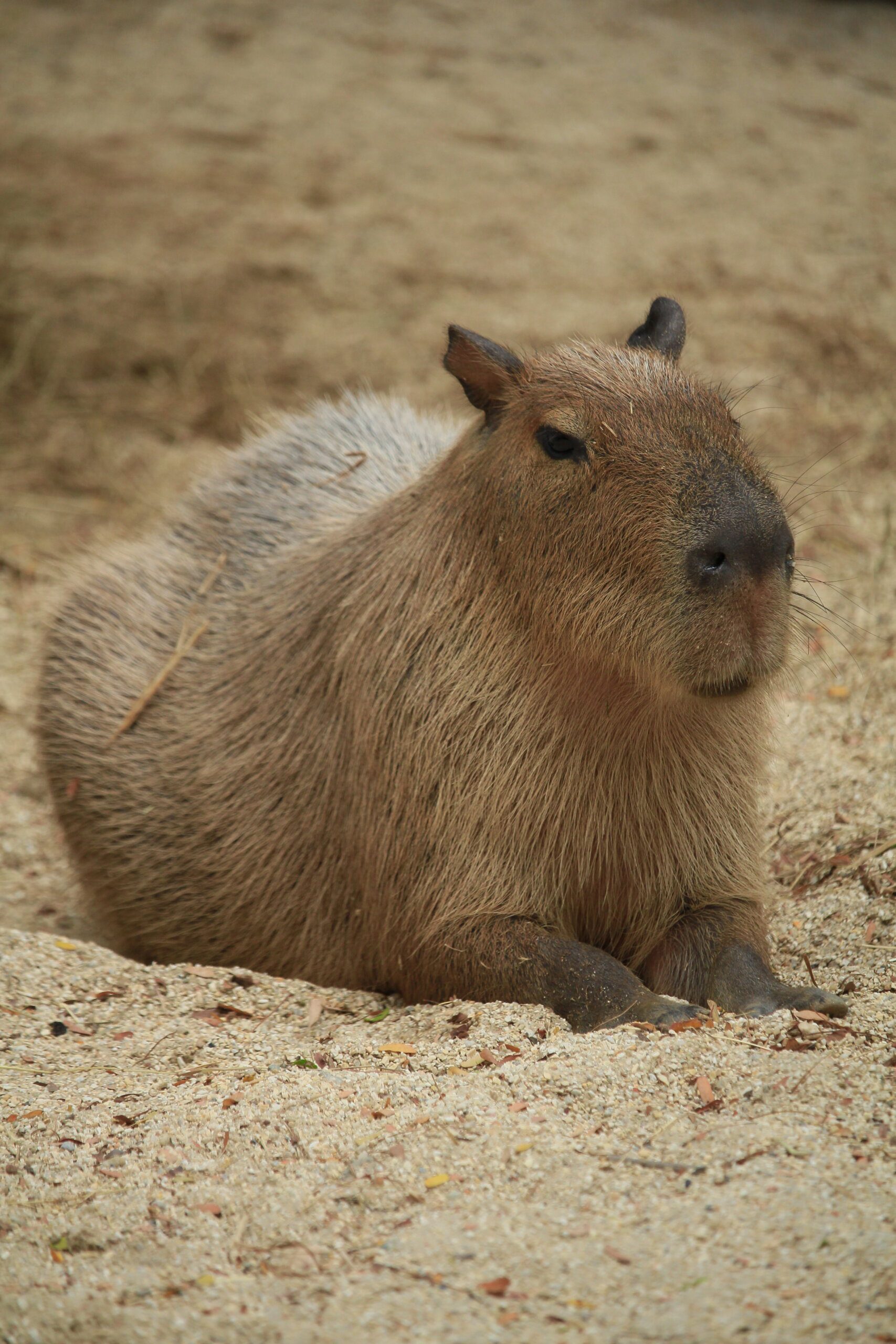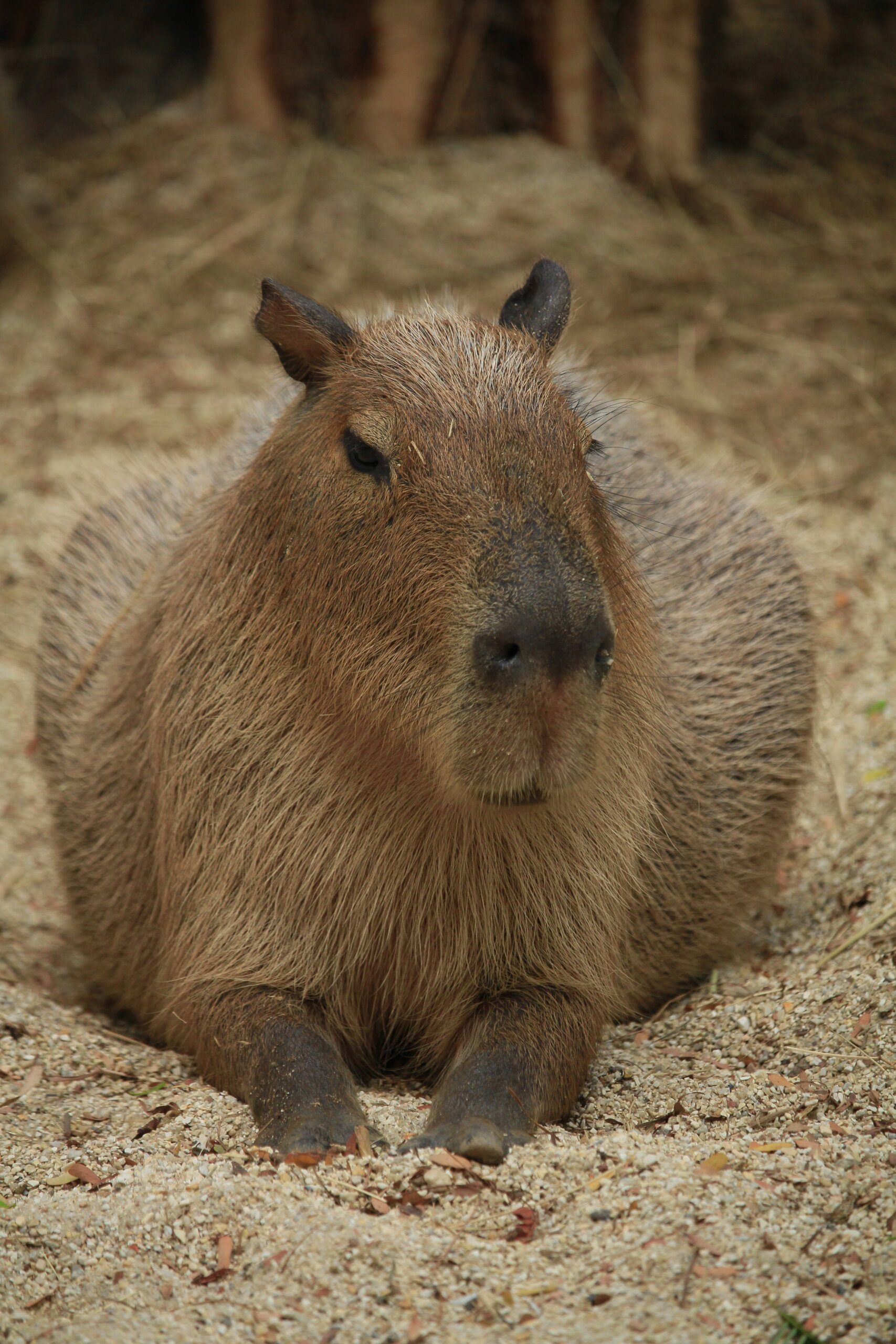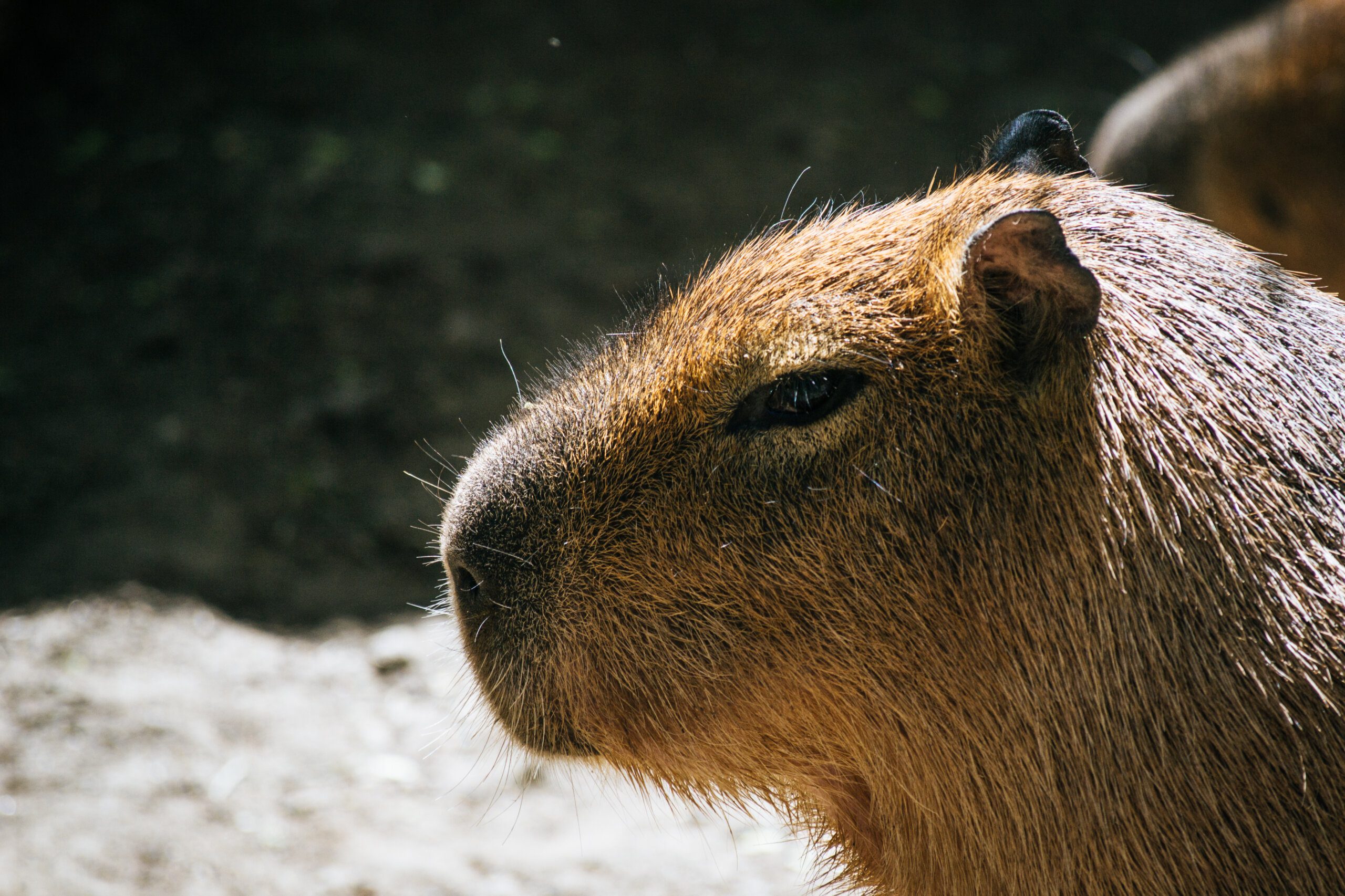Have you ever wondered if it’s possible to have a capybara as a pet? Well, in this article, we will explore the legality of owning a capybara as a pet. Many people are intrigued by these fascinating creatures and often wonder if they could potentially become a unique addition to their household. We will delve into the laws and regulations surrounding capybaras as pets, providing you with all the information you need to know before considering this unusual but adorable companion. So, grab a cup of tea and let’s find out if you can legally own a capybara as a pet.

Laws and Regulations
Owning a pet comes with certain legal responsibilities, and these regulations vary depending on whether you live in the United States or another country. It is essential to understand the laws and regulations surrounding exotic pet ownership, especially when considering bringing a unique animal like a capybara into your home. In the United States, the laws regarding exotic pet ownership are mainly divided into three categories: federal regulations, state regulations, and city and county regulations. Familiarizing yourself with these laws will ensure that you are compliant with the legal requirements and can provide the best care for your capybara.
Federal Regulations
The federal government plays a role in regulating exotic pet ownership to some extent. However, there is currently no specific federal law that addresses capybara ownership directly. This means that the regulation regarding capybara ownership is primarily left to individual states and municipalities. It is crucial to check with your state and local authorities to determine if there are any specific federal regulations or restrictions in place regarding owning a capybara as a pet.
State Regulations
When it comes to exotic pet ownership, regulations can significantly vary from state to state. Some states have specific laws that prohibit or restrict the ownership of capybaras, while others may require permits or licenses. It is important to research the laws and regulations in your particular state to ensure that you are in compliance with the rules regarding capybara ownership. Contacting your local state wildlife agency or department of natural resources can provide you with the most accurate and up-to-date information regarding capybara ownership in your state.
City and County Regulations
In addition to state regulations, cities and counties may also have their own laws and regulations pertaining to the ownership of capybaras and other exotic pets. These local regulations can further restrict or permit ownership and may require additional permits or licenses. It is crucial to check with your specific city or county authorities to understand any local ordinances related to owning a capybara. By doing so, you can ensure that you are abiding by all the necessary regulations and providing a safe and legally compliant environment for your capybara.
Exotic Pet Ownership Laws
When it comes to the categorization of capybaras, they are often considered as part of the exotic pet category due to their unique nature. Exotic pets are animals that are not commonly kept as domesticated companions, and their ownership may have specific guidelines and regulations in place.
Categorization of Capybaras
Capybaras, as the largest rodent species in the world, are native to South America. Due to their exotic nature, they are often subject to specific regulations when it comes to owning them as pets. While they may be allowed in some areas, they are considered illegal in others due to concerns about their potential impact on native ecosystems or public safety. It is important to check the categorization of capybaras in your specific region and understand the legislation that applies to them.
Permits and Licenses
In states and localities where capybara ownership is permitted, you may be required to obtain various permits or licenses. These permits are typically meant to ensure that the potential owner has the necessary knowledge, experience, and means to provide proper care for the animal. The process of obtaining permits and licenses may involve demonstrating your ability to meet the capybara’s specific needs, such as providing appropriate enclosures and veterinary care. It is essential to research and comply with all the permit and license requirements in your area to ensure legal ownership of a capybara.
Bans and Restrictions
Unfortunately, in some areas, capybara ownership is strictly prohibited due to concerns about their potential impact on local ecosystems. This is especially true in regions where capybaras are not native and may pose a threat to native wildlife populations or disrupt local habitats. These bans are put into place to protect local ecosystems and prevent the establishment of non-native species. It is essential to respect these regulations and consider the broader implications before attempting to own a capybara in a region where they are banned.

Endangered Species Act
The Endangered Species Act (ESA) is a federal law enacted in the United States to protect species that are at risk of extinction. While capybaras are not currently listed as an endangered species, the ESA can still have implications for their ownership.
Protection of Capybaras
Although capybaras are not listed as endangered, it is important to consider their conservation status before considering them as pets. As responsible pet owners, it is our duty to prioritize the well-being and preservation of wildlife species. While the ESA does not directly regulate capybara ownership, it is crucial to recognize the importance of supporting conservation efforts and acting responsibly to protect these animals in their natural habitats.
Exemptions and Special Permits
Under specific circumstances, exemptions and special permits may be granted to allow the ownership of capybaras, even if they are protected by the ESA. These exemptions usually involve individuals or institutions that engage in conservation efforts, research, or educational activities related to capybaras. However, obtaining such permits can be a complex process that requires fulfilling strict criteria and demonstrating a genuine commitment to conservation. It is crucial to consult with wildlife conservation authorities and the appropriate regulatory agencies to understand the requirements and implications of obtaining exemptions or special permits for owning a capybara.
Ownership Considerations
Before deciding to bring a capybara into your home, it is important to consider various aspects of ownership. Capybaras have specific needs and requirements that must be met to ensure their health, safety, and overall well-being.
Health and Safety Concerns
Capybaras, like any pet, require regular veterinary care to maintain their health. Finding a veterinarian with experience in treating capybaras is essential for providing them with proper wellness exams, vaccinations, and treatment of any potential health issues. Additionally, capybaras have special dental needs, as their teeth continuously grow throughout their lives. Proper dental care, including regular teeth trimming, is necessary to prevent dental problems and discomfort.
Ensuring the safety of both the capybara and other household members is another important consideration. As capybaras are social creatures, they may become distressed or exhibit aggressive behavior if they are not given proper socialization and training from a young age. It is crucial to work with a qualified animal behaviorist or trainer to establish appropriate boundaries and ensure the capybara’s behavior is safe and manageable.
Habitat Requirements
Capybaras are semi-aquatic animals that require access to water for drinking, swimming, and temperature regulation. Providing an adequate habitat for a capybara may require a significant investment of time, money, and space. They need large outdoor enclosures with access to shallow pools or ponds that offer plenty of swimming and exercise opportunities. The enclosure should also include areas for grazing and shelter, as capybaras are herbivores that graze on grasses and other vegetation.
It is important to ensure that the enclosure is escape-proof and offers protection from predators or other potential dangers. Regular cleaning and maintenance of the enclosure, including water filtration systems, are necessary to provide a clean and healthy environment for the capybara.
Socialization and Enrichment
As highly social animals, capybaras thrive on companionship and interaction. They are herd animals by nature and should ideally have the company of another capybara or a compatible species. If keeping a single capybara, it is crucial to provide ample socialization opportunities and mental stimulation to prevent loneliness and boredom. Regular playtime, interaction with humans, and enrichment activities can help fulfill their social and mental needs.
Dietary Needs
Capybaras have specific dietary requirements that must be met to maintain their health. They are herbivorous animals that consume a diet primarily consisting of grasses, hay, and other vegetation. Providing a varied diet with appropriate nutritional balance is essential to prevent malnutrition and ensure optimal health. Consultation with a veterinarian or animal nutritionist experienced in capybara care can help create a well-balanced diet plan suitable for their specific needs.

Legal Consequences
Failure to comply with the laws and regulations regarding capybara ownership can have legal consequences. It is crucial to understand these potential consequences to ensure compliance and prevent any negative outcomes.
Confiscation and Fines
If found in violation of the laws and regulations surrounding capybara ownership, authorities may confiscate the animal and impose fines or penalties. These consequences can vary depending on the severity of the violation and the specific regulations in place. To avoid the risk of losing your beloved companion and facing financial penalties, it is crucial to stay informed about the legal requirements and abide by them.
Implications for Wildlife Rehabilitation
In some cases, individuals may come into possession of a capybara due to rescue or rehabilitation efforts. It is essential to understand that keeping a capybara obtained through wildlife rehabilitation may be illegal, as these animals are often deemed unreleasable into the wild due to their domestication. Laws concerning the possession and care of wildlife obtained through rehabilitation can vary, so it is essential to consult with local wildlife rehabilitation centers and regulatory authorities to determine the correct course of action.
Legal Penalties
Depending on the jurisdiction and the specific circumstances surrounding illegal capybara ownership, legal penalties can range from fines to potential imprisonment. These penalties are meant to deter individuals from engaging in illegal exotic pet trade or keeping animals that may pose risks to public safety or ecosystems. It is always best to comply with the law and consider the well-being of the animal and the potential long-term consequences before pursuing capybara ownership.
Alternatives to Capybara Ownership
While owning a capybara may not be legal or feasible for everyone, there are alternatives to consider that still allow for interactions with these fascinating creatures.
Capybara Therapy Animals
Capybaras have been used as therapy animals in certain settings, offering emotional support and companionship to individuals with specific needs. Some organizations work with trained capybaras to provide therapeutic services in places like hospitals, nursing homes, and special education facilities. If owning a capybara is not possible, volunteering or visiting such organizations may provide an opportunity for unique interactions with these gentle creatures.
Visiting Wildlife Sanctuaries
If you have a passion for capybaras and want to learn more about them, consider visiting wildlife sanctuaries or rescue centers that house these animals. Many reputable facilities offer educational programs and guided tours that allow visitors to observe and learn about capybaras in a controlled and natural environment. Supporting these organizations through visits or donations can also contribute to their conservation efforts and provide an enriching experience for animal lovers.
Ethical Concerns
When considering owning an exotic pet like a capybara, it is important to reflect on ethical concerns and consider the broader impact on conservation and animal welfare.
Conservation and Wildlife Preservation
Capybaras, as native species to South America, play an important ecological role in their natural habitats. They contribute to ecosystem dynamics, help control vegetation growth, and provide food for predators. Capturing these animals from the wild or even breeding them in captivity for the pet trade can disrupt their natural populations and impact the delicate balance of ecosystems. Supporting conservation initiatives and preservation of capybara habitats ensures the long-term survival of these species and helps maintain healthy ecosystems.
Animal Welfare and Ethical Considerations
Capybaras, as exotic animals, have specialized needs that can be challenging to meet in a domestic setting. Their social needs, habitat requirements, and dietary needs must be carefully considered to ensure their well-being. While some individuals may provide excellent care for their capybaras, many lack the resources, knowledge, and facilities necessary to meet the animal’s needs adequately. It is crucial to assess our ability to provide a suitable environment and consider the overall welfare of the animal before pursuing capybara ownership.
Pros and Cons of Capybara Ownership
Before making a decision about owning a capybara, it is essential to weigh the benefits and drawbacks associated with their ownership.
Benefits of Capybara Ownership
Owning a capybara can be a unique and rewarding experience for individuals who can adequately meet their needs. Capybaras are social animals that can form strong bonds with their human companions, providing a sense of companionship and emotional support. Their playful and curious nature can bring joy and entertainment to a household. For those passionate about conservation and education, owning a capybara can also provide an opportunity to raise awareness about these incredible creatures and their natural habitats.
Drawbacks of Capybara Ownership
Capybara ownership also comes with significant challenges and drawbacks. The demands of providing a suitable habitat, meeting their dietary needs, and providing adequate socialization can be complex and time-consuming. Legal restrictions and potential consequences for non-compliance must also be considered. Additionally, capybaras have a long lifespan and require a long-term commitment, often spanning well over a decade. It is crucial to carefully evaluate these drawbacks and determine if owning a capybara aligns with your lifestyle, capabilities, and ethical beliefs.
Expert Opinions
While considering capybara ownership, it is essential to seek expert opinions from professionals who have experience and knowledge in this field.
Veterinarians
Consulting with a veterinarian who specializes in exotic animals or specifically capybaras can provide valuable insights into the unique needs and requirements of capybara ownership. These professionals can offer guidance on proper care, health considerations, and help identify any potential challenges associated with owning a capybara.
Animal Welfare Organizations
Reputable animal welfare organizations, such as the American Society for the Prevention of Cruelty to Animals (ASPCA) and Humane Society, can provide comprehensive resources on exotic pet ownership and animal welfare considerations. These organizations often advocate for responsible ownership and can help ensure that you are well-informed before making any decisions about owning a capybara.
Wildlife Conservation Authorities
Consulting with wildlife conservation authorities, both at the local and national level, can provide a broader perspective on the conservation and ethical implications of capybara ownership. These experts can offer insights into the impact of the exotic pet trade on wild populations and the importance of preserving capybara habitats. They can further guide you on how to support conservation efforts and make responsible choices as a potential capybara owner.
Conclusion
Owning a capybara as a pet is a unique endeavor that comes with a variety of legal, ethical, and practical considerations. Understanding the laws and regulations surrounding capybara ownership in your area is crucial for a safe and legal experience. Additionally, ensuring that you can meet the animal’s physical, social, and dietary needs is essential for their well-being. The decision to own a capybara should be made with careful thought, consideration, and respect for the animals and their natural habitats. By staying informed, seeking expert advice, and prioritizing their welfare, you can create a suitable environment for capybara ownership, promoting responsible and ethical practices in exotic pet ownership.



